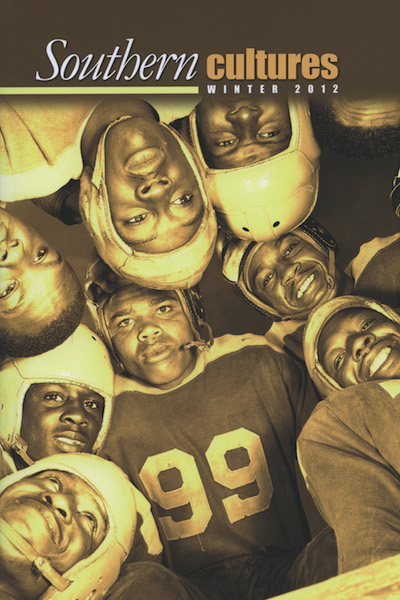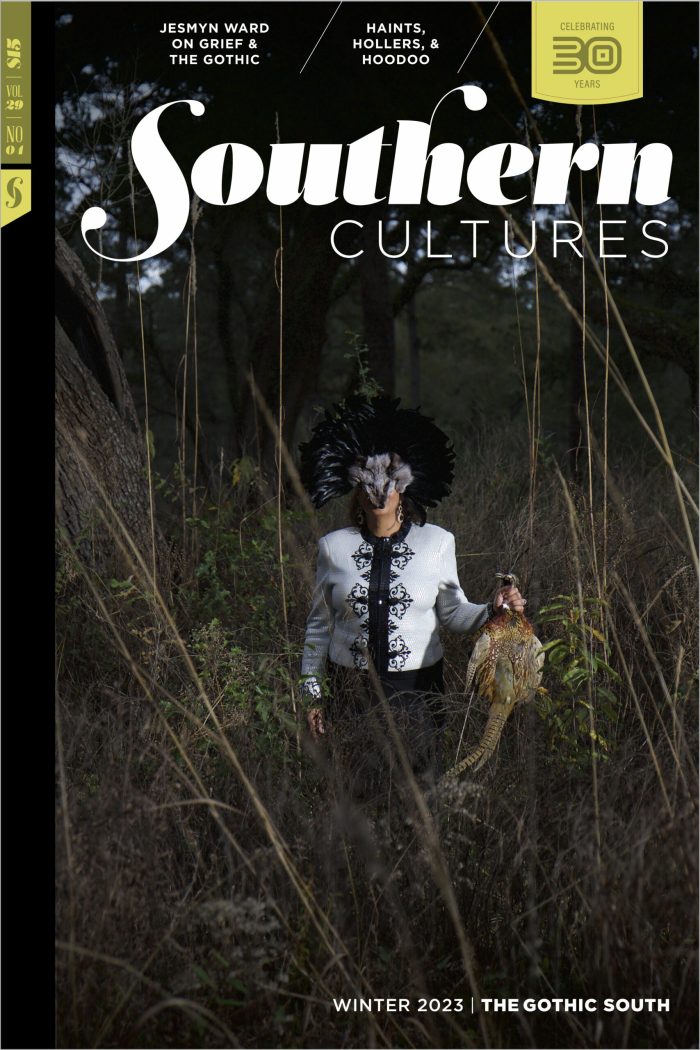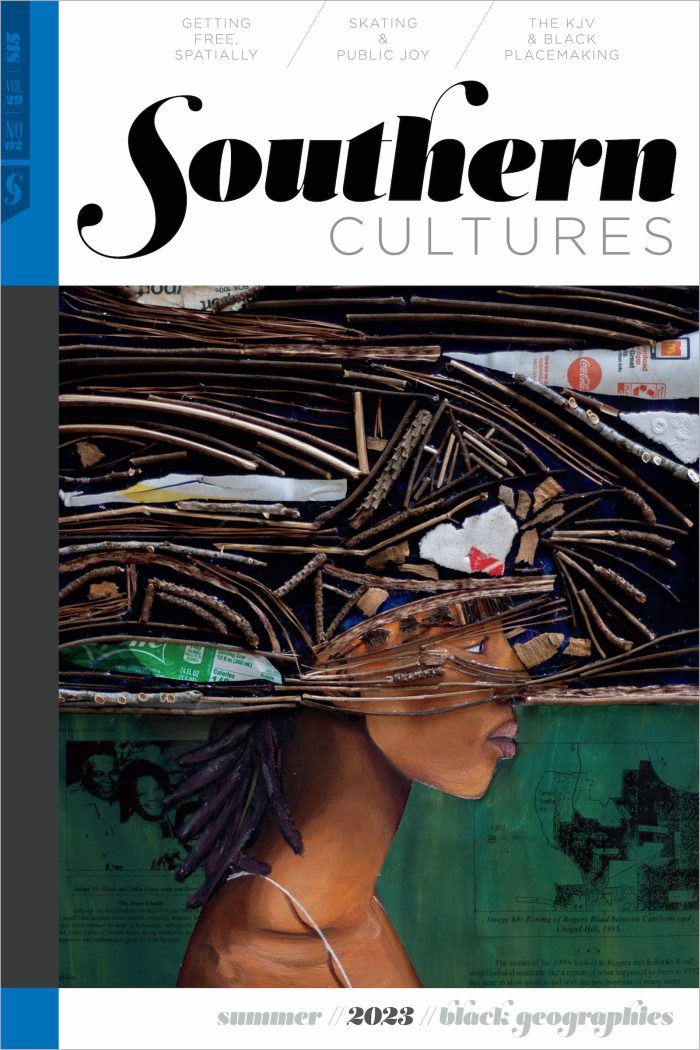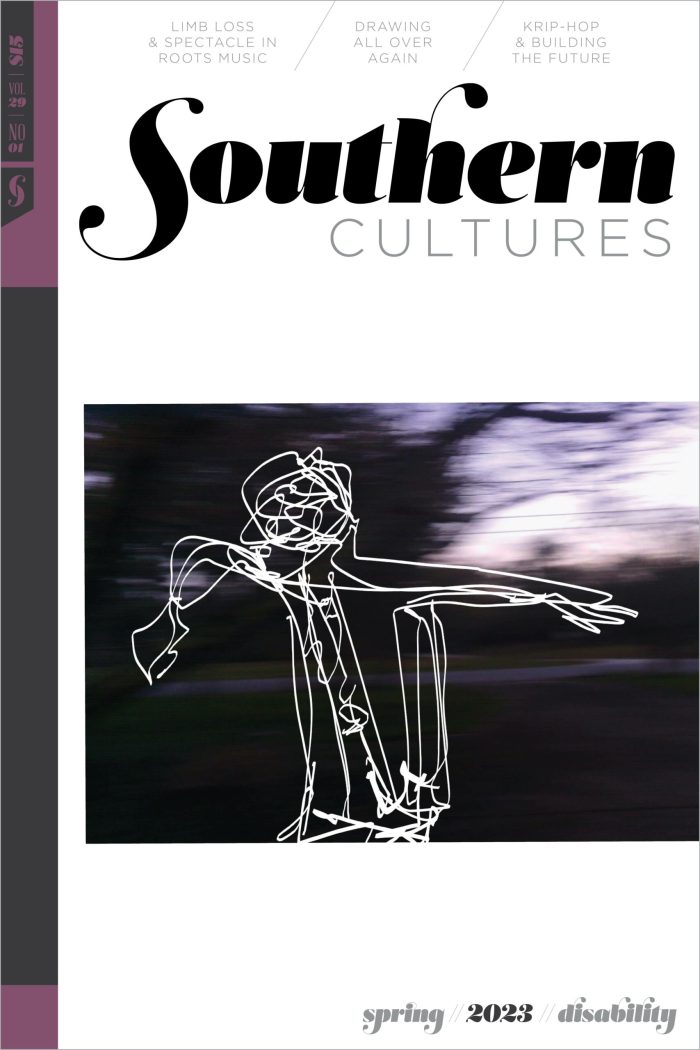BUY ACCESS
by Harry L. Watson
“If the South can survive, should it—cotton mills, deb balls, and all?” Reflections on the South frequently turn on questions of identity. Is the South really different? Different from what? How so and why? What is “southernness”? Is it disappearing or just changing? What is all this mysticism about “place”?
BUY ACCESS
by Susan Harbage Page,
Cynthia Lewis
“‘There’s no choosing. It isn’t choice. Are you the daughter of somebody who was somebody who was somebody? And if you are, and you’re not a heroin addict, you are there.'” The grand staircase fronting the South Carolina Historical Society in Charleston leads to large, wooden, locked double doors and instructions to ring the bell »
BUY ACCESS
by Harvey H. Jackson III,
Daniel S. Pierce
“The outlandish stories of the antics of early stock car racers immediately attracted me. Lloyd Seay and Roy Hall hauling liquor from Dawsonville to Atlanta one night and winning races the next day in the same car; Fonty Flock winning the Southern 500 wearing Bermuda shorts and argyle socks; his brother Tim racing with a »
BUY ACCESS
by Brooks Blevins
“The country store survives. The survivors—and there are more of them than you might imagine—are models of adaptation.” There’s nothing quite like going back home. If, like me, you’re a child of the rural South, you’ll know that feeling, see and smell and hear and feel that feeling. The smell of tilled earth or freshly »
BUY ACCESS
by Wade Clark Roof
“It was not until 1946 when my grandmother received a copy of the revised birth certificate in the mail from my father and blurted out to me, ‘That ain’t your name,’ that I really became aware of the problems. She quickly added, ‘Your mother, she never got it right neither.'” The family saga as a »
BUY ACCESS
by William Harmon
“. . . there’s Humphrey pumping drugs all out & sundae soda cracker pop . . .” general merchandise the old testament.wares notions sundries dry goods ready to wear candy hats cash & carry HarryTruman making change thanks.
BUY ACCESS
by Melissa M. Sloan,
Ashley B. Thompson
“‘You’ve never been black, have you? No, if you’d been black, you wouldn’t ask no silly-ass question like that.'” The “South” is virtually inconceivable without sustained attention to race, yet most scholarly examinations of southern identity have focused almost exclusively on the experiences of white southerners, ignoring the experiences of other racial groups in the »
BUY ACCESS
by JL Strickland
“I would stand outside the mill fence mesmerized by the shadows of pumping Jacquard loom arms on the opaque windowpanes. I had found where I wanted to go. It looked like fun to me. It looked like magic. It didn’t take long for that silly notion to be knocked out of my head. But, I »
BUY ACCESS
by Michael Kammen
University of Virginia Press, 2009 A flourishing cottage industry customarily called “memory studies” is now thrusting into its third decade. This well-researched volume makes a useful contribution to the field as well as to our understanding of southern culture. The author rightly declares that “social memory is one of the key elements that constitutes social »
BUY ACCESS
by Anthony J. Stanonis
University of Georgia Press, 2012 The shores of the Gulf Coast have grown crowded with resorts since the Second World War, but historians, until now, have lagged in studying this development. Harvey Jackson combs the beaches of Alabama and the Florida Panhandle to recount not only the history of the coast but also of the »
BUY ACCESS
by Cynthia Stokes Brown
University of North Carolina Press, 2009 Katherine Mellen Charron’s Freedom’s Teacher, winner of the Julia Cherry Spruill prize for the best monograph on southern women’s history, has clearly won the approval of historians, but it richly deserves to reach a wider audience. From her vantage point as the daughter of a black southern teacher, Charron »
BUY ACCESS
by Lawrence Earley
University of North Carolina Press, 2010 Picture books come in a variety of forms but ultimately most of them serve the same purpose: they are gift books, and once the wrapping is off and the pages flipped, they are destined too often to gather dust on a coffee table. In the case of The Coasts »





